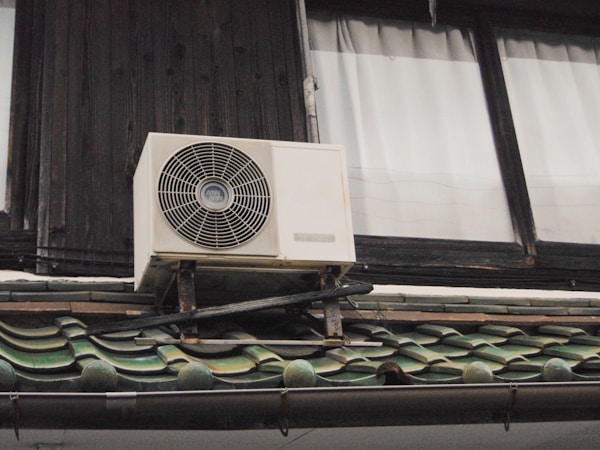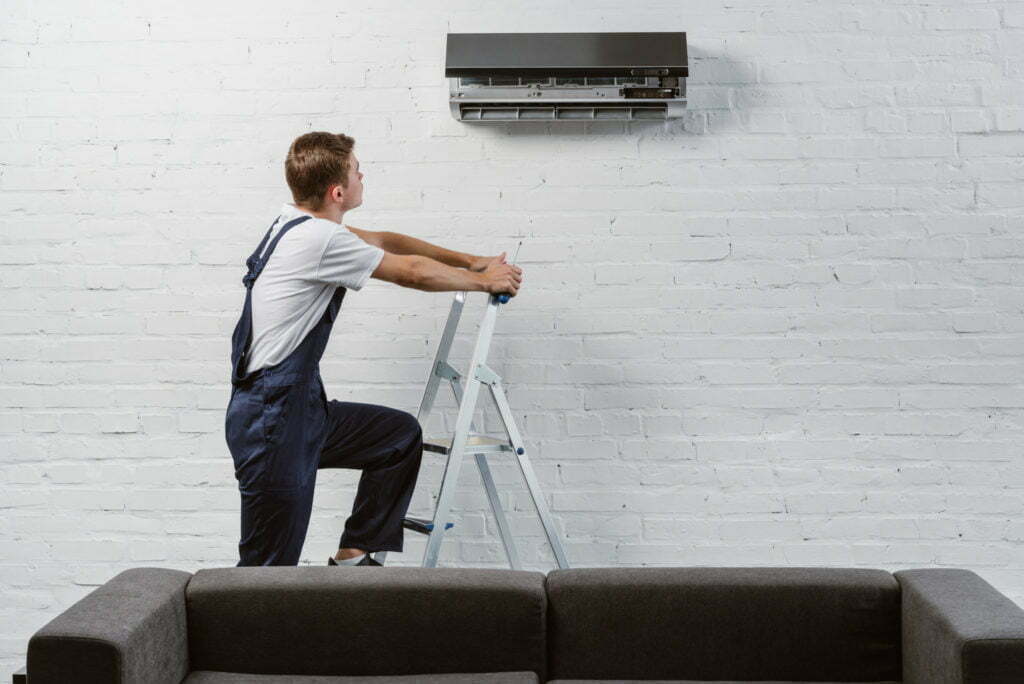Your air conditioner needs to be well-maintained if you want it to last for a long time. Homeowners tend to invest in their HVAC systems, which is why it’s important to get routine maintenance from a technician. If you notice your energy bills are higher than normal or that your AC unit isn’t cooling your home like it used to, then you may have an AC leak. Keep reading to learn how to find an AC leak and what to do about it.
Check the condensation line for leaks.

If you’re seeing water around your AC, it may be time to call in a professional. However, before doing that, you can do a quick check of the condensation line for leaks. The condensation line is the tube that carries the water from your AC to the ground. If this line is leaking, it can cause water damage to your home. To check for leaks, look for any places where the tubing might be visible outside of your house. If you see any leaks, use a hose to trace the leak back to its source and fix it.
Look for ice on your AC’s evaporator coil and see if there’s water pooling near the unit.
An AC leak can cause your home’s energy bill to skyrocket. Not only will you be using more electricity to cool your home, but you could also be damaging the unit, leading to an even pricier repair down the road. One telltale sign is ice on your evaporator coil or water pooling near the unit. If you see either of these signs, it’s time to call a technician for a repair.
Inspect the outside of your AC for any damage.
If you need to spot an AC leak, you can start by inspecting the outside of your unit for any damage. If you notice anything like a broken pipe, frayed wires, or a missing panel, you’ll need to call a professional to get it fixed. Otherwise, the leak will only get worse and cost you more money in the long run.
Check the coils and fins on the outside of the unit.

One of the few other places you should look is on the coils and fins on the outside of your AC unit. If these are damaged or dirty, it can cause air to escape from the system, leading to decreased cooling performance and higher energy bills. To spot damage or dirt on the coils and fins, inspect them closely for any tears, holes, or clogs. You can also use a brush to clean off any built-up dirt or debris. If you find any damage or dirt, be sure to have it repaired or cleaned as soon as possible.
Listen for any strange noises coming from your AC unit.
If you’re hearing strange noises coming from your AC unit, it could be a sign that there’s a leak. Leaks can cause the system to work harder than necessary and can shorten its lifespan. A hissing noise could be an indication of a leak. Check the insulation around the pipes near the AC unit. If it’s wet or damp, that could be another sign of a leak.
The page above offers a few tips for how to spot an AC leak, which can save homeowners money on their electric bills and help prevent the AC unit from breaking down. The most important tip is to check the coils on the AC unit, as these are the most common place for a leak to develop. Other tips include checking the insulation on the pipes and checking the drainage pipe for water.





